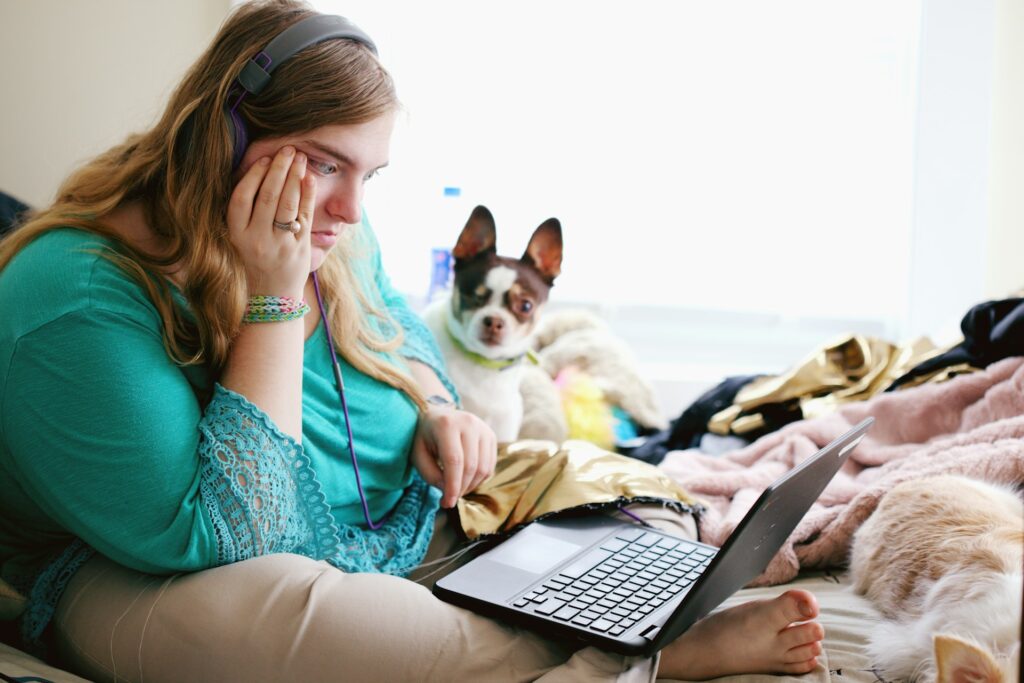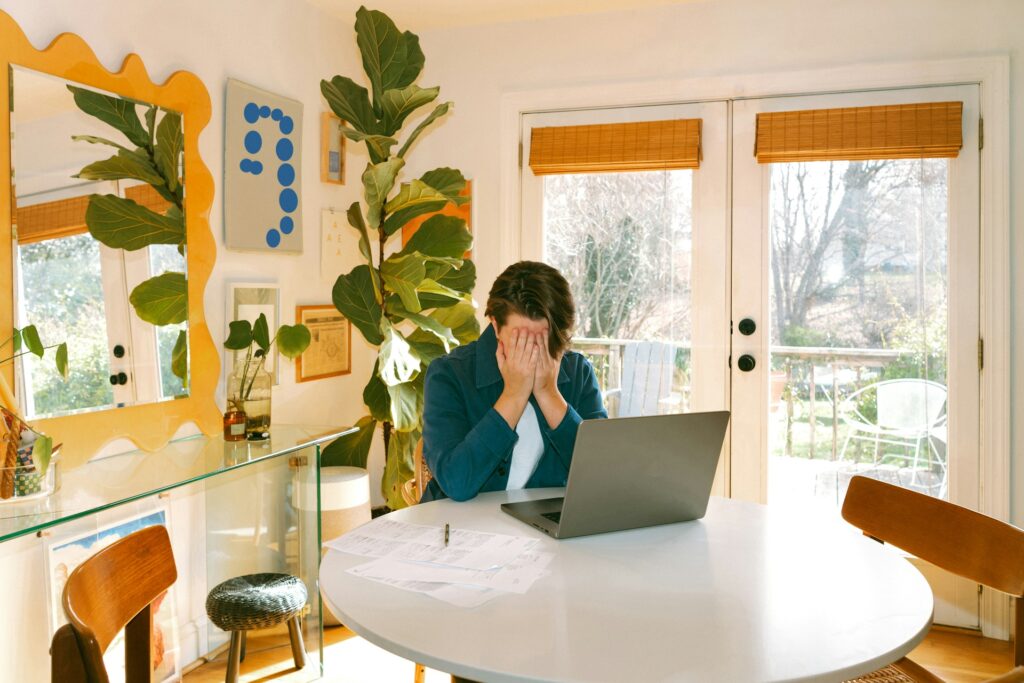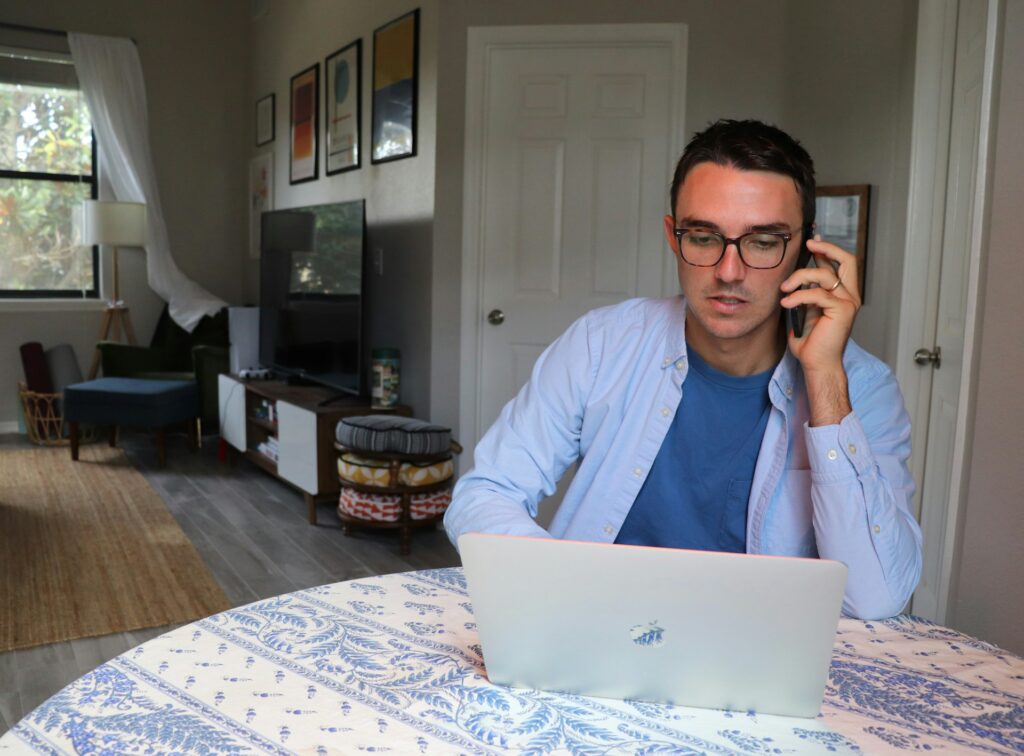At first, working from home felt like winning the lottery—no commute, flexible clothes, coffee from your own kitchen.

However, as time has gone on, a different reality has set in. The blurred lines, the isolation, the creeping exhaustion… they’ve all left their mark. Here’s the side of remote work that doesn’t always make it onto the highlight reels, and why it’s okay if it’s been harder than you expected. That’s not to say there aren’t still plenty of advantages to clocking in from your own space, but it’s definitely not all fun and games.
1. The line between work and life quietly disappears.

When your dining table is also your desk and your sofa becomes your conference room, it’s harder to mentally clock off. Work seeps into evenings, weekends, even your dreams if you’re not careful. Without the physical separation of an office, your brain struggles to switch gears. Over time, that constant half-working state wears you down in ways that can be hard to spot until burnout starts whispering at the edges.
2. Small stresses feel much bigger in isolation.

In an office, a weird email or awkward moment often gets balanced out by a chat in the kitchen or a quick vent to a coworker. Alone at home, there’s no easy outlet, and small frustrations can quietly snowball. Without the casual debriefs that used to help reset your perspective, tiny stresses start to loom larger, making ordinary work bumps feel a lot heavier than they should.
3. Social energy drains faster without in-person balance.

Even for introverts, human energy is real. Small in-person interactions—smiling at someone, casual jokes, the buzz of a shared space—act like unseen batteries that recharge your social brain. Working from home drains those reserves without refilling them. Video calls can’t replicate it. Over time, you can start feeling strangely disconnected even when you’re technically “talking to people” all day.
4. It’s easy to fall into an “always available” trap.

Without set office hours or a commute to signal the day’s end, it’s tempting to answer late emails, approve one more document, stay reachable “just in case,” even if no one asked you to. What starts as being “helpful” can quietly become exhausting. Constant availability chips away at your ability to rest, making it harder to fully disconnect and protect your mental health long-term.
5. You lose tiny routines that once anchored your day.

The walk to the bus stop, the stop for coffee, even the quick chat with security—these weren’t just filler. They gave your day natural shape, little transitions that helped your brain move between modes. At home, those tiny anchors vanish. Without them, days can blur into a strange fog where time slips past and everything starts to feel both too fast and weirdly stagnant at the same time.
6. Loneliness creeps in even when you’re busy.

You can have back-to-back meetings and still feel alone. Digital interaction scratches the surface of connection, but it rarely feeds the deeper human need to feel seen, known, and physically present with other people. That quiet loneliness isn’t about disliking your work or your team. It’s about missing the layers of connection that only happen when you share a space, side conversations, and even comfortable silences.
7. Self-doubt can grow louder without feedback loops.

In a physical office, small affirmations—a nod in a meeting, a quick “good job” in passing—helped build invisible bridges of confidence. At home, those casual boosts vanish. Without that steady feedback, self-doubt has more room to creep in. You might second-guess yourself more, read too much into neutral emails, or feel like you’re constantly falling short—even when you’re not.
8. Physical health habits start to slip without structure.

Even the light exercise of a commute, standing to chat with coworkers, or walking to lunch helped keep your body moving. Working from home can mean hours without standing up if you’re not paying attention. That physical stagnation feeds into emotional stagnation too. Over time, feeling stiff, sluggish, and disconnected from your body makes it harder to shake off stress, focus, or even feel fully present in your own life.
9. Personal life boundaries get harder to defend.

When you’re home all day, people around you sometimes forget that you’re still working—or worse, that you still need proper breaks. It gets harder to separate “you time” from “everything else” time. Protecting personal space starts to feel like a fight instead of a natural boundary. If you’re already tired, it’s easy to stop defending it altogether, letting everything bleed into everything else until you’re stretched way too thin.
10. Success starts feeling oddly invisible.

When you finish a big project or hit a milestone, there’s no group celebration, no casual “well done” energy buzzing through the room. Success becomes a private thing, maybe even something that feels anticlimactic. Without those public moments of recognition, it’s easy to forget how far you’ve come. Achievements lose some of their shine when they happen in silence, with no one there to mark them properly alongside you.
11. Negative self-talk has more room to spiral.

Without the casual reassurance of friendly faces, a bad day at work can turn into a bad week in your own mind. It’s easier for critical thoughts to spiral unchecked when you’re alone with them. Remote work can sometimes amplify inner narratives that aren’t even true—making you feel isolated, not good enough, or permanently behind, even if the reality is far more forgiving.
12. Creative energy sometimes struggles without environmental change.

New ideas often come from changing scenery—commutes, bustling cafés, different conference rooms. At home, the same walls, same desk, and same view can quietly dull your creative spark over time. Creativity feeds off movement and newness, and when those are missing, it takes a lot more effort to generate fresh thinking or stay excited about what you’re building day after day.
13. The pressure to “prove” you’re productive gets exhausting.

Even if no one’s watching, the invisible pressure often is: the need to always seem “on,” to answer instantly, to show you’re working harder from home than you ever did at the office. That performative productivity mindset drains your energy fast. Over time, it turns work into an endless treadmill—one where rest feels like laziness instead of a necessary part of doing your best long-term.


